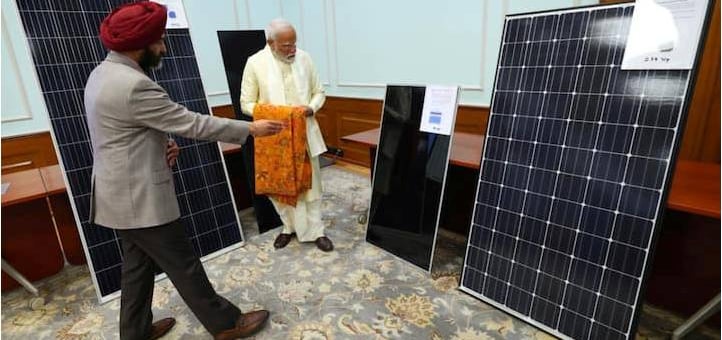The Impact of "Suryoday Yojana" in the Electricity Sector
POLITICALSOLAR NEWS
1/25/20242 min read


This step taken by the Prime Minister of India is a very revolutionary step in the world. For this, many thanks to the Prime Minister of India Shri Narendra Modi by Suryashakti Solars.
India's Prime Minister, Narendra Modi, has recently introduced a groundbreaking initiative called "Suryoday Yojana" that is set to revolutionize the electricity sector in the country. This ambitious project aims to provide uninterrupted power supply to farmers during the day, utilizing solar energy as the primary source.
The "Suryoday Yojana" scheme is a game changer for the electricity sector, as it not only addresses the issue of power shortages in rural areas but also promotes the use of renewable energy sources. This initiative is expected to have a significant impact on the lives of farmers and the overall development of the agricultural sector.
Benefits of "Suryoday Yojana"
1. Uninterrupted Power Supply: One of the key benefits of the "Suryoday Yojana" is the provision of uninterrupted power supply to farmers during the day. This will enable them to carry out their agricultural activities efficiently and enhance productivity.
2. Solar Energy Utilization: The scheme promotes the use of solar energy as the primary source of power. By harnessing the abundant sunlight in India, the reliance on conventional sources of electricity will be reduced, leading to a more sustainable and eco-friendly energy system.
3. Reduction in Diesel Dependency: Many farmers in rural areas rely on diesel generators for electricity, which is not only expensive but also contributes to pollution. With the implementation of "Suryoday Yojana," farmers will be able to shift to solar power, reducing their dependence on diesel and saving costs in the long run.
4. Empowerment of Farmers: The availability of uninterrupted power supply will empower farmers to adopt modern agricultural practices. They can now utilize advanced irrigation techniques, such as drip irrigation, and operate high-efficiency machinery, leading to increased crop yields and improved livelihoods.
Implementation and Challenges
The successful implementation of the "Suryoday Yojana" scheme requires a robust infrastructure for solar power generation and distribution. The government aims to set up solar panels on agricultural lands, rooftops, and other suitable locations to harness solar energy effectively.
However, there are certain challenges that need to be addressed for the smooth execution of the project. These include the availability of adequate funding, ensuring the maintenance and durability of solar panels, and providing technical training to farmers for the efficient use of solar-powered equipment.
Conclusion
The "Suryoday Yojana" introduced by Prime Minister Narendra Modi is a significant step towards transforming the electricity sector in India. This initiative not only addresses the issue of power shortages for farmers but also promotes the use of renewable energy sources, contributing to a greener and more sustainable future.
By providing uninterrupted power supply during the day and encouraging the adoption of solar energy, this scheme will empower farmers and enhance agricultural productivity. The successful implementation of the "Suryoday Yojana" will undoubtedly have a positive impact on the lives of farmers and the overall development of the electricity sector in India.
